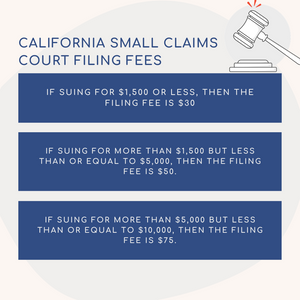People Clerk helps you with your small claims court lawsuit.
Get StartedContents
Hired a contractor to fix your floors, paint your house, or build a pool but they failed to properly complete the job? You have several options including submitting a complaint to the California Contractors State License Board.
This article outlines the following ways to resolve your dispute against a contractor:
File a complaint with the California Contractors State License Board
File a small claims court lawsuit
California Contractors State License Board (CSLB)
What is the California Contractors State Licensing Board?
The Contractors State Licensing Board is a California government agency that regulates contractors. As of 2020, there are around 300,000 contractors in California.
The Contractor's Licensing Board:
Issues licenses.
Investigates consumer complaints.
Enforces the rules that contractors have to follow.
Did you know that the Contractors State Licensing Board publishes guides on hiring a contractor? Here are some key takeaways:
If a contractor charges $500 or more, they must be licensed.
Any changes to the contract or change orders, "need to be in writing and signed" by both you and the contractor.
Don't forget to always check a contractor's license before getting work done!
What types of complaints does the California Contractors State License Board handle?
The Contractors State License Board handles a broad range of complaints against contractors. Here are some examples:
When a contractor damages your home.
When you hired a contractor to fix something in your home but they didn't fix it.
When you paid the contractor but they didn't perform the work.
Note: the CSLB cautions that "If your primary interest is to recover the money you paid to a contractor, you should consider civil action.
If you're considering legal action to recover damages of $12,500 or less, CSLB may provide you with information to help you file a small claims court action.
Learn more about suing a contractor in a California small claims court.
How to File a Complaint with the California Contractors State License Board:
Click here to print a PDF of the California Contractors State License Board complaint form.
Organize any evidence that will help the Contractors State License Board process your complaint against the contractor.
For example, contracts, invoices, pictures, and communications.
Mail the completed complaint form and your evidence to:
Counties served: Los Angeles, Orange, Riverside, San Diego, Ventura:
Contractors State License Board
Norwalk Intake & Mediation Center
12501 East Imperial Highway
Suite 620
Norwalk, CA 90650
All other counties not listed above:
Contractors State License Board
Sacramento Intake & Mediation Center
P.O. Box 269116
Sacramento, CA 95826
What to Expect Following Submission of your CSLB complaint
Once you submit your complaint to the Contractors State Licensing Board here is a summary of the steps they will take:
You will receive written confirmation that the CSLB has received your complaint within 2-3 weeks from when the complaint was filed.
CSLB will contact the contractor to encourage them to resolve the complaint with you directly.
CSLB may contact you requesting evidence or additional documents.
The CSLB may also provide you information about available free mediation or arbitration between you and the contractor.
If there is a violation of the Contractors' State License Law, they may fine the contractor, suspend, or revoke their license.
Many times, the CSLB will refer you to a small claims court if your complaint cannot be resolved or depending on their resources.
Note: if you filed a complaint against a licensed contractor, the CSLB cannot guarantee you will get your money back but it will try to help you.
The CSLB does not have the authority to force an unlicensed contractor to pay you back but the CSLB can fine them or refer the complaint to the district attorney's office.
What to do if no agreement is reached after you file a complaint with the California Contractors License Board? You may want to try filing a California small claims lawsuit.
Read More: How to file a Small Claims Court lawsuit in California
California Small Claims Court
Suing a contractor is one of the most common types of lawsuits filed in small claims court.
What types of lawsuits can be filed against contractors in small claims?
Many types of lawsuits can be filed against contractors, the most common ones are over:
The final bill a contractor provides you with.
Doing a bad job for what you hired the contractor for ("poor workmanship").
Not finishing the job you hired the contractor to complete.
Small Claims Court Limits
To be able to file a small claims court lawsuit in California, you are capped at the amount you can sue for, also known as "small claims court limits."
If you are owed for more than the amount you can sue for, you can still sue for the maximum amount allowed, but you will need to waive any additional amount over the limit.
What are the California Small Claims Court Filing Fees?
The amount you will pay to file a small claims lawsuit in California depends on how much you are suing for. You will pay between $30 to $75 to file the lawsuit. If cannot afford to pay court fees, you can ask the court to waive the fees.

What are other costs for Small Claims Court?
In most small claims cases, you can expect to pay:
Filing fees (see above) $30- $75
Serving Costs can range from $0-$75 per person you sue.
If you win, you can request that the losing party pay for your court fees and serving costs.
Frequently Asked Questions
Do I need a lawyer to go to court? No, in fact, California does not allow lawyers to represent you at the initial small claims hearing.
What are small claims hearings like in California? The hearings are quick and on average are 10-15 minutes. Learn more here.
How long does small claims take? A court usually schedules the small claims hearing no later than 70 days from when the lawsuit is filed. Learn more here.
The Contractors State Licensing Board also publishes a guide for suing a contractor in small claims court. Here are some takeaways:
If you win your lawsuit, the licensing board can help you enforce the small claims judgment if it is "substantially related to the construction activities of the licensed contractor." While they cannot force the contractor to pay, they can suspend the contractor's license until they pay you.
Make sure you have the correct legal entity name for the defendant. For example, is the contractor doing business as an individual, LLC, or corporation? Learn more here. If the contractor is licensed, their legal entity information will come up when you search for their license number on the CSLB website.
Sometimes you may also be able to sue the company that issued the contractor's bond! The contractor's bond information will come up when you search for their license number on the CSLB website.
Read More: Steps to find the Legal Entity Name in California
Collecting a Small Claims Court Judgment Against a Licensed Contractor
If you win your small claims lawsuit, the California State Contractors License Board may be able to help you enforce the small claims judgment by suspending the contractor's license until they pay you.
If you submit a copy of the judge's decision within 90 days from when the court decided your lawsuit, the CSLB will notify the contractor that they have 90 days from when CSLB notifies the contractor to pay the judgment. If the contractor does not pay the judgment, CSLB will suspend their license until they pay you.
If the judgment is 91 days or older, CSLB will suspend the contractor's license until the judgment is paid.

Camila Lopez
Legal Educator at JusticeDirect. Camila holds a law degree and is a certified mediator. Her passion is breaking down complicated legal processes so that people without an attorney can get justice.
